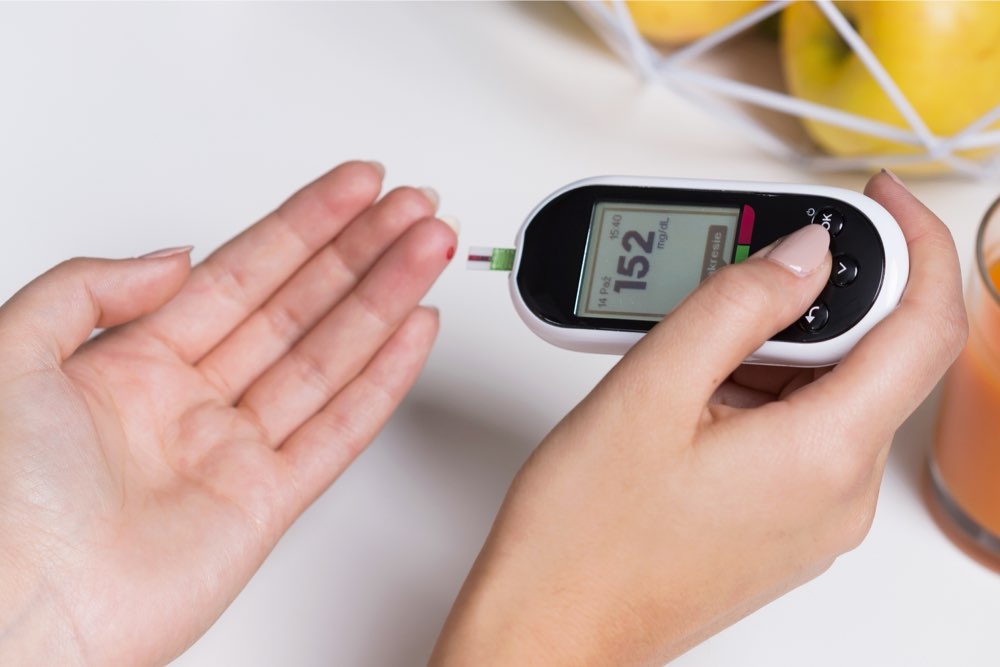Effective Natural Methods to Regulate Blood Sugar and Improve Overall Wellness
Discover comprehensive natural strategies to regulate blood sugar effectively. From nutritional tips like increasing dietary fiber and mineral intake to lifestyle changes such as regular exercise, hydration, stress reduction, and sleep hygiene, this guide provides practical advice for maintaining healthy glucose levels and boosting overall wellness without medication.

Proven Natural Approaches for Maintaining Healthy Blood Glucose Levels
Maintaining balanced blood sugar levels is a vital aspect of overall health, especially in today’s world where lifestyle choices often lead to metabolic challenges. Unhealthy eating habits, minimal physical activity, and increased stress can adversely affect insulin sensitivity and blood glucose regulation. Fortunately, there are numerous natural strategies that individuals can adopt to support healthy blood sugar without relying solely on medications. These methods emphasize lifestyle adjustments, nutritional choices, and stress management practices to promote metabolic health effectively.
Importance of Proper Hydration
Staying well-hydrated is fundamental for managing blood sugar. Water acts as a natural cleanser for the kidneys, helping to eliminate excess glucose through urine. Dehydration can lead to higher blood sugar levels, so ensuring adequate water intake throughout the day is crucial. Replacing sugary beverages such as sodas, fruit juices, and sweetened teas with plain water or herbal teas can drastically reduce sugar intake and prevent spikes in blood glucose. This simple change supports better insulin sensitivity and helps in maintaining steady glucose levels.
Using herbal teas like cinnamon or chamomile can enhance hydration and additionally offer specific health benefits. These drinks contain compounds that aid in lowering blood sugar and reducing inflammation, providing a dual advantage. Proper hydration also contributes to maintaining optimal metabolic function, supporting entire body systems and preventing the development of insulin resistance.
Increasing Dietary Fiber Intake
Dietary fiber is renowned for its ability to regulate blood sugar levels efficiently. Fiber-rich foods slow down the digestion and absorption of carbohydrates, leading to more gradual increases in blood glucose following meals. Soluble fiber, found in oats, legumes, fruits like apples and berries, and vegetables such as carrots and broccoli, is particularly effective in stabilizing blood sugar. Incorporating a variety of fiber sources into daily meals can prevent sudden glucose surges, help maintain steady energy levels, and promote overall digestive health.
Ensuring a diet high in dietary fiber not only aids in blood sugar management but also reduces the risk of developing type 2 diabetes. Adult nutrition experts recommend aiming for at least 25-30 grams of fiber daily, emphasizing the importance of including a broad spectrum of plant-based foods.
Minerals for Blood Sugar Control: Magnesium and Chromium
Both magnesium and chromium are essential minerals that play significant roles in blood sugar regulation. Magnesium contributes to insulin sensitivity and helps in glucose uptake by cells, while chromium enhances insulin action and improves carbohydrate metabolism. Deficits in these minerals have been linked to increased blood sugar levels and the development of insulin resistance.
To meet your nutritional needs, include magnesium-rich foods such as dark leafy greens (spinach, kale), nuts, seeds, whole grains like brown rice and oats, and legumes. Chromium can be sourced from foods such as lean meats, broccoli, grapes, and whole grains. Regularly consuming these foods can help maintain optimal mineral levels, supporting a balanced blood glucose profile naturally.
Benefits of Drinking Green Tea
Green tea is celebrated worldwide for its rich antioxidant content, especially catechins and polyphenols that combat oxidative stress and promote metabolic health. Consuming two to three cups of green tea daily has been shown to lower fasting blood sugar levels and enhance insulin sensitivity. Its natural compounds can slow the absorption of carbohydrates, ensuring a more stable blood sugar response after meals.
Integrating green tea into your daily routine is a simple, effective, and enjoyable way to support metabolic health. Plus, green tea offers additional benefits, such as boosting immune function, aiding weight management, and reducing inflammation, all contributing to better blood sugar control.
Exercise as a Natural Regulator of Blood Sugar
Physical activity is one of the most effective natural methods to improve insulin sensitivity and regulate blood glucose. Whether it is brisk walking, jogging, cycling, dancing, or practicing yoga, staying active pays significant health dividends. Exercise helps muscles absorb glucose more efficiently for energy use, reducing blood sugar levels naturally.
Experts recommend aiming for at least 150 minutes of moderate-intensity exercise each week, which can be broken down into manageable sessions. Incorporating strength training two to three times weekly can further increase muscle mass, enhancing the body's ability to utilize insulin. Consistent physical activity not only manages blood sugar but also helps control weight, blood pressure, and cholesterol levels.
Lifestyle Modifications Versus Medication
While medication can be necessary for some individuals, lifestyle changes remain a cornerstone of natural blood sugar regulation. Dietary adjustments like increasing fiber intake, reducing refined carbohydrate consumption, and avoiding processed foods can significantly impact glucose levels. Weight management is crucial, as excess fat, particularly around the abdomen, contributes to insulin resistance.
Additionally, quitting smoking and limiting alcohol intake are vital steps toward better metabolic health. Creating a balanced routine that includes healthy meal planning, regular physical activity, and mindfulness practices can promote long-term stability in blood sugar levels without over-reliance on medication.
Stress Management for Better Glucose Control
Chronic stress elevates cortisol levels, which in turn can increase blood glucose. Incorporating relaxation techniques such as meditation, deep breathing exercises, progressive muscle relaxation, and mindfulness meditation can effectively lower stress and support blood sugar regulation. Spending just 15-30 minutes daily on stress reduction can lead to significant improvements in both mental well-being and physical health.
Engaging in activities that promote relaxation and mental clarity can not only help control blood sugar but also improve sleep quality, reduce inflammation, and bolster immune health.
Prioritizing Quality Sleep
Adequate sleep is essential for hormone regulation, including insulin. Short or poor sleep quality can disrupt hormonal balance, leading to increased blood sugar and insulin resistance. Aiming for 7-9 hours of restful sleep per night, practicing good sleep hygiene, and establishing consistent sleep routines are critical steps.
Ensuring a comfortable sleep environment, limiting screen time before bed, and avoiding caffeine late in the day can enhance sleep quality and, consequently, blood sugar control.
In summary, managing blood sugar naturally involves a multifaceted approach that combines dietary changes, physical activity, stress management, proper hydration, and healthy sleep habits. These sustainable lifestyle practices empower individuals to take control of their health, prevent the onset of diabetes, and promote a better quality of life.





